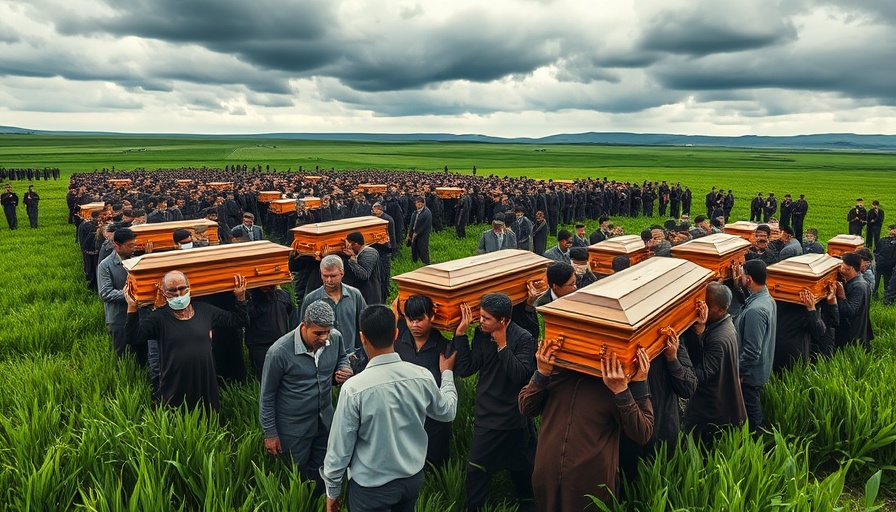
Understanding the Crisis: A Surge in Christian Persecution
In recent weeks, international headlines have been dominated by alarming reports of religious violence targeting Christians across sub-Saharan Africa. The United States government, recognizing the gravity of this escalating crisis, has issued statements reaffirming its commitment to protecting religious freedoms globally. This response comes as numerous violent incidents have been reported, including the horrific killings of 49 Christians during a church attack in the Democratic Republic of Congo and a shocking incident where 27 individuals were burned alive in a Nigerian village.
The Devastating Numbers: Lives Lost and Communities Torn Apart
According to observers and local non-government organizations (NGOs), the situation has reached breaking point. Over 6,000 Christians were reported killed due to violence in 2020 alone, a statistic that underscores a growing trend of targeted attacks against religious minorities. In addition to murders, thousands of families have been displaced from their homes as violence intensifies, leading to what many are calling a humanitarian crisis. The stark reality of such violence leaves communities shattered emotionally and physically, raising urgent questions about safety and religious freedom in the region.
International Aid: The Role of the U.S. Government
The White House has pledged its backing to initiatives aimed at providing humanitarian assistance in response to such atrocities. Recent U.S. reports emphasize not only a call for humanitarian aid but also an appeal for international collaboration to address the root causes of the conflict. The government has emphasized that it plans to work closely with allies and international organizations to combat persecution and promote tolerance and understanding in affected regions.
Rapid Response: How the U.S. Can Help Change the Narrative
Experts argue that various forms of intervention could help to remedy the situation. These interventions may include diplomacy that applies pressure on governments failing to protect their citizens, funding for community development to build resilience against extremist narratives, and bolstering law enforcement to combat local insurgencies more effectively. It is crucial for the U.S. and its allies to push for legislation that supports human rights and conversion therapies to counteract extremist ideologies.
The Importance of Awareness and Education
Public awareness of this crisis is vital. The rise of social media platforms has provided a powerful tool for activists and NGOs to share real-time updates about these tragedies. Initiatives that bring stories from the ground to audiences can have profound impacts on fostering empathy and urging responsible action from governments and communities worldwide. With a more informed public, pressure can mount on those in power to act thoughtfully and decisively in defining policies that protect persecuted communities.
Countering Misconceptions: Reality Check on Religious Freedom
It is easy to overlook the profound implications of religious persecution in a world often focused on other international issues. Nonetheless, the pressures faced by Christians in different regions worldwide reflect a dangerous trend of narrowed freedoms that could potentially affect various groups, including Muslims and other minorities. Open dialogue and shared stories can bridge divides that mislead the public perception regarding the essence of religious freedom and coexistence.
Looking Towards the Future: The Need for Collective Action
The challenges faced by Christians and other religious minorities highlight the broader struggle for human rights and dignity globally. To combat this widespread persecution, it is imperative for nations to commit to a principled approach where the protection of human rights—irrespective of religious affiliation—is paramount. This commitment transcends borders and calls for multilateral action that champions not only tolerance but celebrates diversity.
Call to Action: Get Involved for Change
As the situation unfolds, citizens worldwide are encouraged to engage actively in discussion around these issues, support relevant NGOs working on the ground, and advocate for policy changes that safeguard religious freedoms. Awareness is the first step toward compassion, and compassion is the catalyst for change. Together, we can work toward a future free from persecution.
 Add Element
Add Element  Add Row
Add Row 



Write A Comment